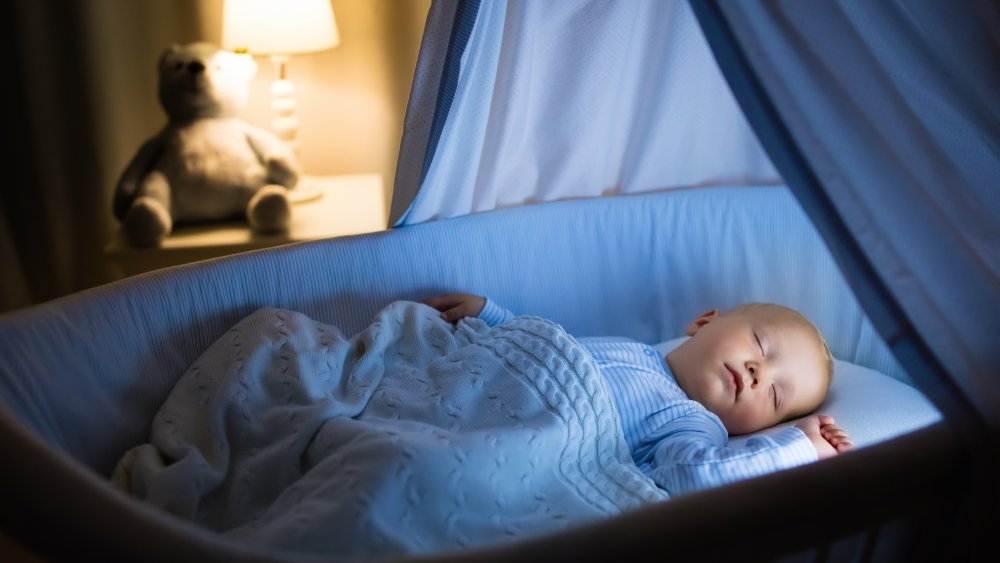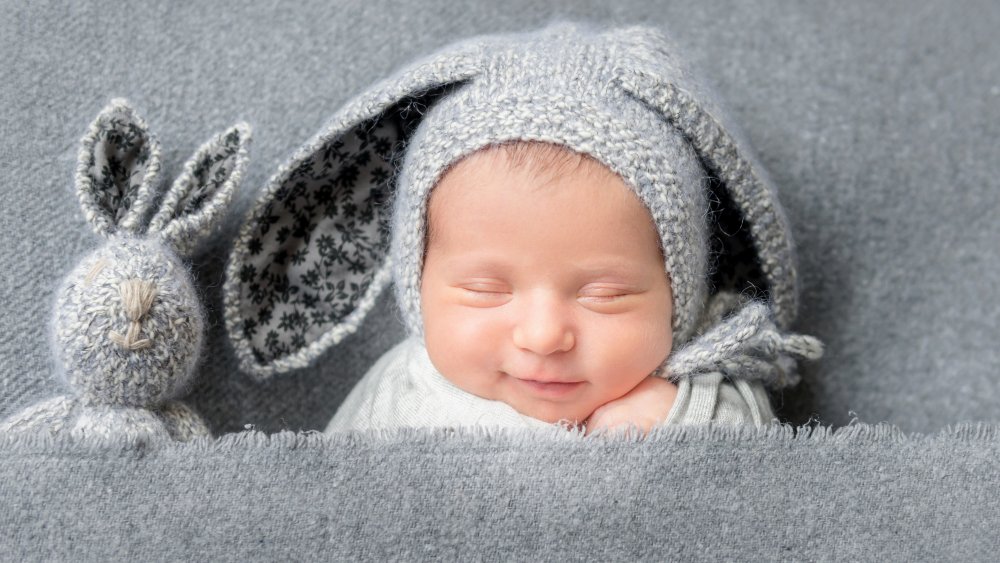What Do Babies Dream About?
While finally getting your newborn to sleep is hailed as a high achievement for new parents, babies actually spend at least half of the day asleep, though obviously not uninterrupted (via Sleep.org). This fact raises the question — what's happening during that 15 (or so) hours of sleep each day?
The act of sleep has been studied exhaustively throughout history, and while new discoveries continue to be made, scientists have a pretty firm grasp on what goes on in the minds of adults when they sleep. The same, however, cannot be said about babies. This mystery leaves many parents wondering — is my baby dreaming? And if so, what about?
Babies spend half of their snoozing time in REM sleep
According to Healthline, REM sleep is the stage where most dreaming occurs, and adults spend about 20 percent of their sleep in this stage. Compare that to the roughly 50 percent of sleep babies spend in REM, and it's easy to imagine why experts have spent a significant amount of time trying to determine whether or not they dream.
In 2002, psychologist David Foulkes presented his theory that babies don't dream, saying, "If an organism gives evidence that it can perceive a reality, then we are prone to imagine that it can dream one as well," leading many to (in his mind mistakenly) assume that babies can dream (via LiveScience). However, Foulkes, and those that agree with him, believe that babies, with their inability to fully understand the world around them, don't dream for the first few years of their life. Instead, the ability to dream develops alongside the ability to talk (via Healthline).
However, as reported by the Atlantic, other experts, like Kelly Bulkeley, disagree with Foulkes, instead explaining, "The commonsense view is that yes, babies are dreaming — they just don't have language to be able to communicate that." This belief arises from the fact that, in the years since Foulkes' study, we've learned that babies' minds are a lot more aware and capable of perception than we previously thought.
Unfortunately, no definitive answer to this mystery has been uncovered. While sleep experts may place themselves firmly in either the "yes they do" or "no they don't" camps, the truth is we don't know, and likely won't be able to know until a huge technical advancement gives us the ability to truly know what's going on inside the mind of infants.

